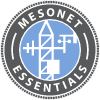Mesonet Essentials is a resource created in collaboration with members of the American Association of State Climatologists (AASC) and the national mesonet community. To learn more about the AASC vision, mission, goals, and membership opportunities, visit their website at www.stateclimate.org.
Your Diverse Mesonet Stakeholders
Your mesonet deliverables, including data products, provide valuable information that can be used to make important decisions for many areas of the economy, institutions, and the health and safety of individuals. Advancements in technology, measurement and monitoring instruments, and data communications have made it possible to routinely acquire timely mesonet weather data on short time scales (such as five minutes) from distances as great as 20 to 30 km. Your mesonet data and other deliverables are of great value to a variety of stakeholders representing a multitude of entities, including the following:
- Local, state, and federal governments
- Local K-12 schools
- Universities
- Research organizations
- Emergency management, transportation, and agricultural sectors
- Public health community
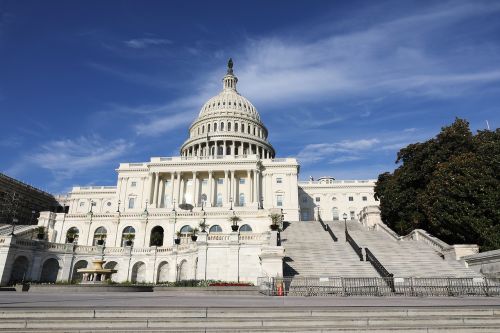

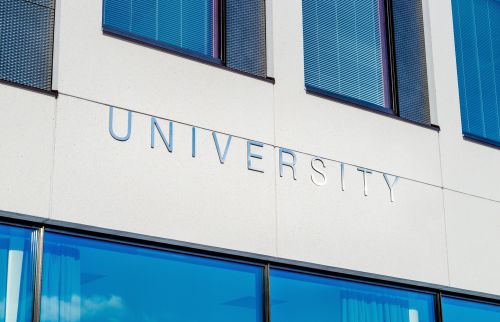


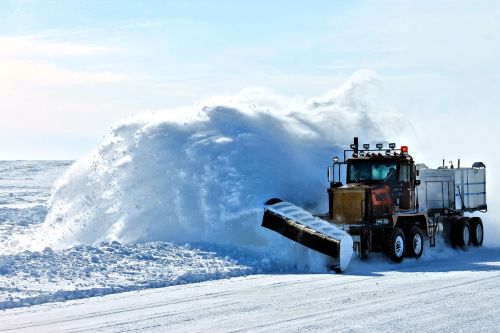
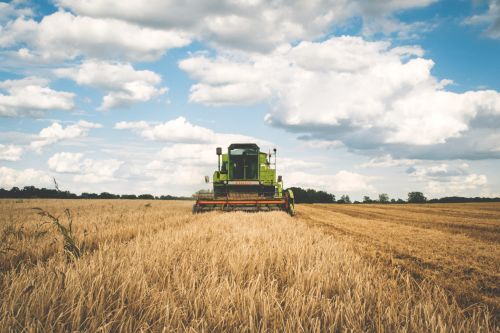

Benefits of Supporting a Mesonet
Because your stakeholders may encompass a multitude of entities, the benefits they receive from supporting your mesonet are equally diverse, and it’s not possible to provide an all-encompassing list. The following are just a few examples of benefits that your stakeholders may receive:
- Educational partners receive an invaluable tool for teaching STEM.
- Researchers receive a valuable, diverse dataset for exploring the natural sciences.
- The emergency management, transportation, and public health sectors receive real-time data that translate to faster, more accurate products that can help save lives and property.
- The commercial sector receives high-quality, local data from which they can further develop value-added products for a variety of customers.
While stakeholders do benefit from mesonet data, it is important to remember that your mesonet data are not collected exclusively for the benefit of a single stakeholder. Rather, your mesonet data are intended to be shared among your mesonet’s many stakeholders.
Resources: For more information about the benefits and value of mesonets, review the “What value do mesonets provide?” and “Are more mesonets needed?” topics in the introductory section, as well as the Products section.
Types of Non-Financial Support

Stakeholders are essential partners in making your mesonet project successful. For example, your stakeholders fulfill a critical role by providing financial support to sustain your mesonet. (For more information on funding, review the Funding section.) There are, however, many other ways that individuals and organizations can support your mesonet. The following are some examples:
- Provide word-of-mouth advertising. Active stakeholders can help publicize your mesonet to make more people aware of its purpose and value, engage the public’s support, and generate interest in others to use your mesonet deliverables. These advocates may also help market your mesonet via social media and speak with local legislators on behalf of your mesonet.
- Offer critical data feedback. It’s possible, but highly unlikely, that your mesonet will work perfectly all the time. For example, you may have an incorrectly calibrated sensor or a station that is grossly affected by local microclimate features. Because stakeholders can become dependent on your data, they may alert you to important trends or features in your dataset. Their feedback can help you improve the quality and resiliency of your mesonet.
- Suggest improvements. Over time, you will want to upgrade and improve your mesonet. Your stakeholders can offer suggestions to help plan your future improvements and additions.
Hosting a station site
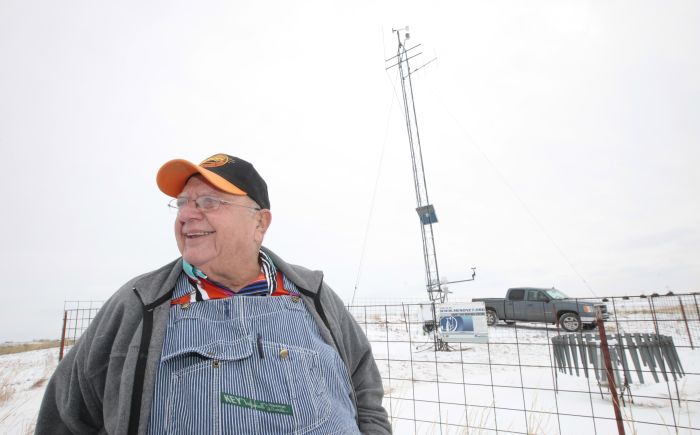
(Photo courtesy of The Oklahoman)
Stakeholders can also support a mesonet by hosting a station site on their property. To ensure that the relationship between the mesonet project and the individual landowners remains on good terms, open, clear communication is essential. Each party should know what is expected by using signed, written documents that establish the roles and responsibilities of landowners in relation to your mesonet project. Oftentimes, this means using a land lease agreement and a siting agreement. These documents should allow rent-free use of the designated parcel of land (typically ≤ 10 m2) with easy access for technicians to enter and leave the parcel to install and maintain the mesonet. Typically, technicians may visit once per month and more frequently during the summer months. The technicians are responsible for taking care of the parcel (such as cutting the grass), and the parcel may be fenced off to protect the station site, if necessary.
Most mesonet stations are self-supporting. This means that the site host does not need to provide power or communications services to the parcel.
Typically, a site host is not monetarily compensated; however, the site host often receives free access to the mesonet data or other benefits.
